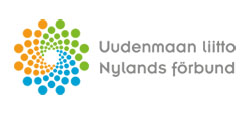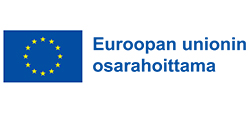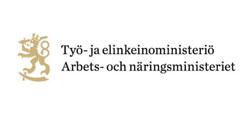Within the contemporary context of Industry 4.0, known as the fourth industrial revolution, the rapid development of digital technologies and the use of information in productive processes have led both to structural changes in the economy (production, distribution, and services), and to the generation of new trends in cities. The data revolution is involving not only a more data-driven decision-making in policy-making, but also the use of digital platforms and their encompassing ecosystems. Public authorities are increasingly promoting openness and transparency by releasing data in a more accessible way (see Neves et al., 2020; Sotarauta et al., 2022).
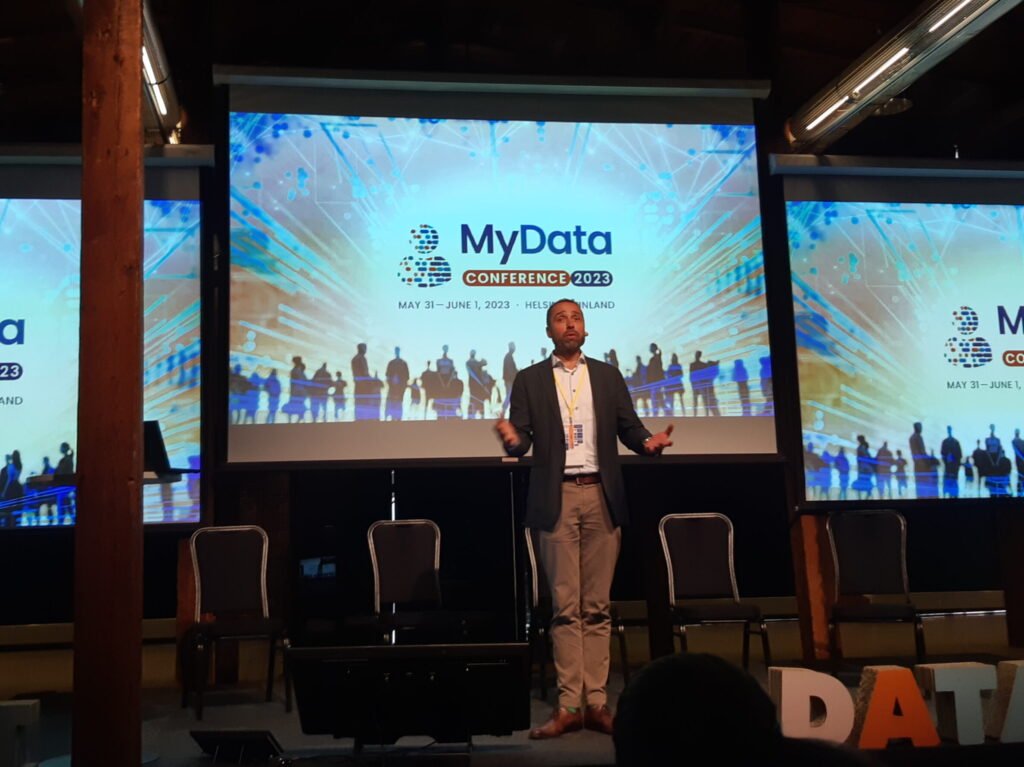
At MyData Global conference (Helsinki, 31.05-01.06.2023), I got the opportunity to acquire knowledge on a growing, global movement (MyData Global, headquartered in Finland since 2018), whose goal is to empower individuals by improving their right to self-determination regarding their personal data (MyData), which are created in different areas of human life (Figure 1, Ministry of Transport and Communications, 2020). MyData Global is currently exploring and advancing the personal data ecosystem initiative, which aims at promoting an intermediary model for personal data management (MyData operator); this means collaboration and interoperability of multiple personal data intermediaries. In a workshop where I participated, different ideas were collected on how such an ecosystem could function and what kind of value proposition could be built.
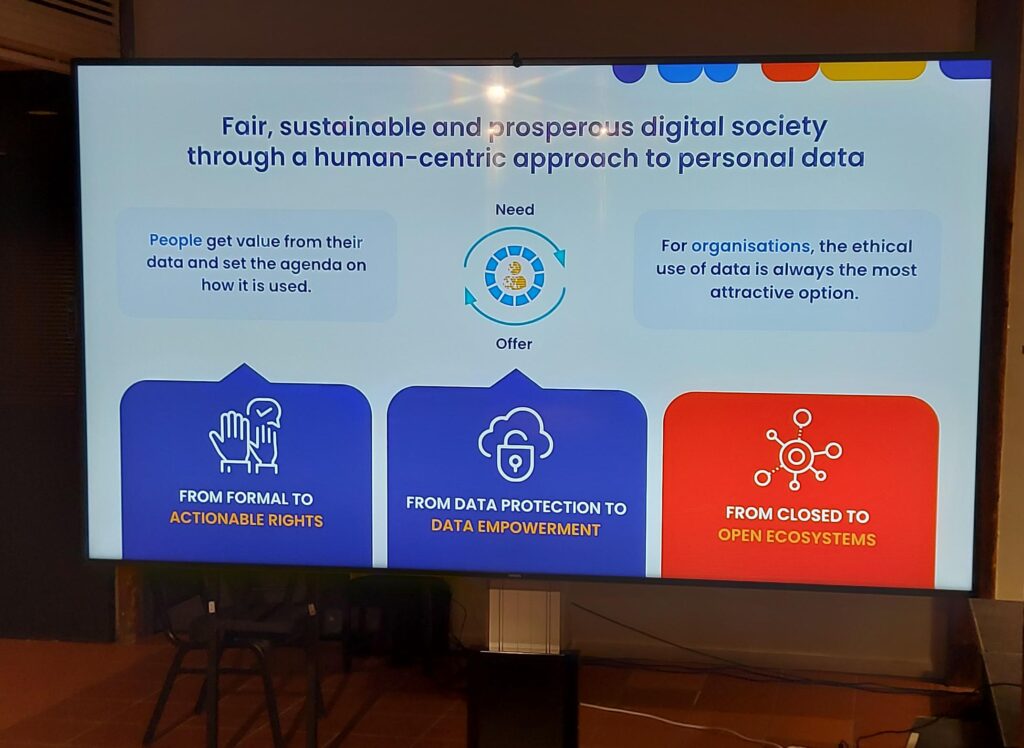
The key milestone of MyData is that people themselves can use, manage, and give permission regarding data collected about them, such as shopping, mobility, financial, or health data. Such approach focuses on human-centric data management, which creates interoperability and at the same time combines and co-creates digital human rights and high data protection standards with the promotion of data availability (see for instance Helsinki Region Infoshare).
By becoming personal data platforms, cities can speed up the transition from the current reactive approach to a proactive one, whereas personalised citizens’ needs are anticipated and addressed in advance. Helsinki has adopted a centralized general consent management system in public services. Citizens can authenticate themselves to access a city service, and they have the right to grant, deny or revoke consent on personal data use for a specified service.
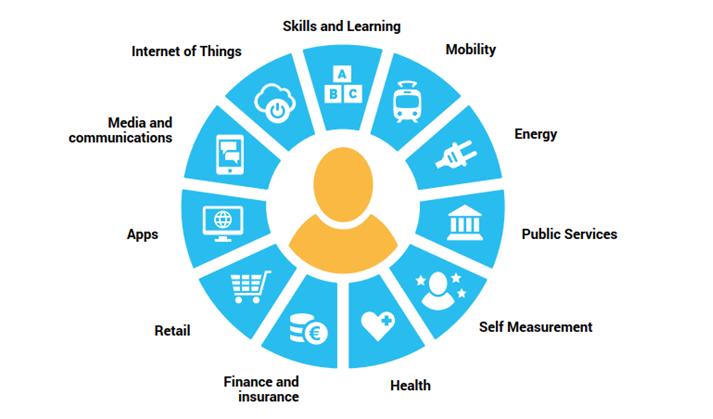
It is important in this regard to note that the European Data Governance Act (entered into force in 2022, and applicable from September 2023) will define the framework for commercial data transmission services (data sharing between companies and between companies and consumers). Its role in relation to the cities as MyData operators should definitely be clarified and streamlined; in addition, this whole new, shaping ecosystem of data sharing should be defined.
A human-centric approach gives also companies the opportunity to develop their business models based on better customer insights and involve customers in the production and design of their services. For instance, Superhood Oy is a Helsinki-based urban tech startup founded in 2020 whose application was developed during the pandemic by providing a platform that aggregates local news and information from various channels and sources into personal neighborhood feeds, without user tracking, closed groups, or excessive algorithms.
Along with the promotion of data availability, the introduction of new technologies such as digital twins and metaverse is going to permeate the development of smart cities. This was very much evident during the Smart City Week hold in Tampere the 6th and 7th of June, where among other things the concepts and use of digital twins and metaverse were addressed. Tampere is a relevant ICT and artificial intelligence (AI) center of expertise that attracts talented people. Its data-driven city for citizens development program is the latest phase of Tampere smart city development, which consists of five milestones of transformation: Sustainable City, Safe Pedestrian City, a city of growth and learning, a city of business growth, and international and inclusive city. Metaverse can help find solution to wicked problems and to predict and influence urban development, as outlined in the Tampere Metaverse vision 2040.
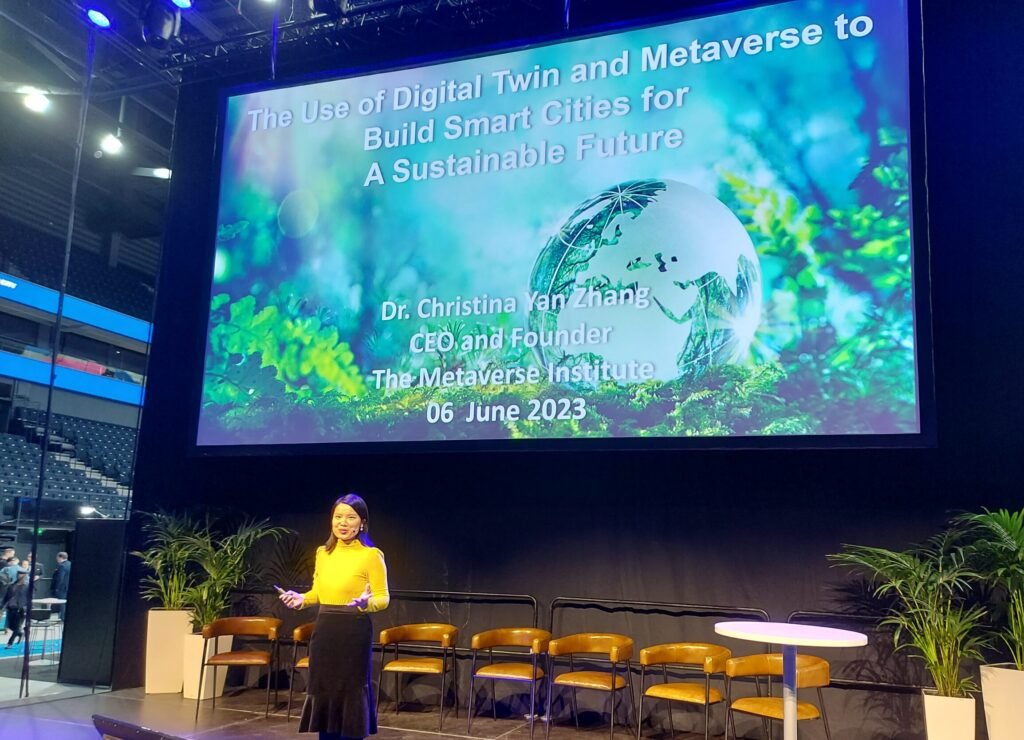
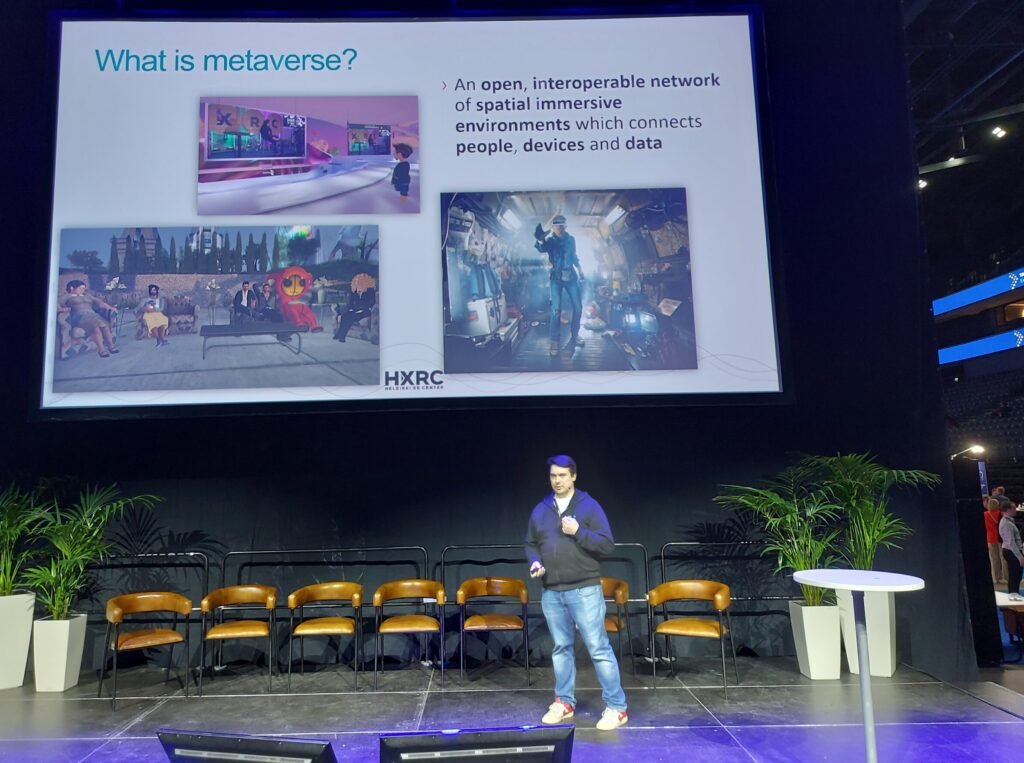
Metaverse has been defined as an immersive, social, and interactive environment that supports the simultaneous real-time interactions in a graphically smooth, operational environment. It is considered the next generation of the internet enabled by several converging technologies. As remarked by R&D Lead Santeri Saarinen, from Helsinki XR Center, we shouldn’ t be talking about metaverses. We should be talking about Metaverse technologies or Metaverse applications. At one point, all these technologies might converge towards a Singular Metaverse, but not today, and no single application is the Metaverse.
An example of metaverse technology is digital twin, which is a representation of a physical environment; to be more specific, it is a dynamic, bi-directional connection between the physical and virtual object. Within the smart city context, better, high quality, comprehensive and updating data on urban operating environment gives us a tool for knowledge-based analyses, simulation for alternative solutions, and eventually decision-making. To a various extent, in Finland digital twins haven been piloted and carried out in the cities of Helsinki, Tampere, and Oulu. The LiiDi2 project for example, run from Forum Virium and Stara (2021-2023), creates a model for the digital twin of mobility and develops new methods for collecting and making data available. The digital twin for mobility describes urban traffic, the traffic environment and conditions virtually.
In the future, digital twins, along with other digital technologies such as Artificial Intelligence (AI) and Internet of Things (IoT), will become relevant tools for the cities which aim at optimizing their daily functions: energy consumption, space optimization, security, traffic management, etc. This is why our ecosystem project agreement (2021-2027) has an essential role both at the national, and at the local level in boosting smart and sustainable urban solutions in the upcoming future. Not only robust data infrastructure will be needed, but also a change in organizational culture is to be encouraged, including a holistic, strong strategy between city departments and between cities, as well as a proactive attitude of city workers (see also Hämäläinen 2021).
Text and photos:
Fulvio Rizzo, HEVi-team
References:
Hämäläinen, M. (2021). Urban development with dynamic digital twins in Helsinki city. The Institute of Engineering and Technology.
Ministry of Transport and Communications (2020). MyData- an introduction to human-centric use of personal data.
Neves F. T., Neto M. C., ja Aparicio, M. (2020). The impacts of open data initiatives on smart cities: a framework for evaluation and monitoring. Cities, Vol. 106.
Sotarauta, M., Kolemainen, J., ja Laasonen, V. (2022). Innovation policy in Finland. Tampere University, Sente Working Papers 50/2022.
